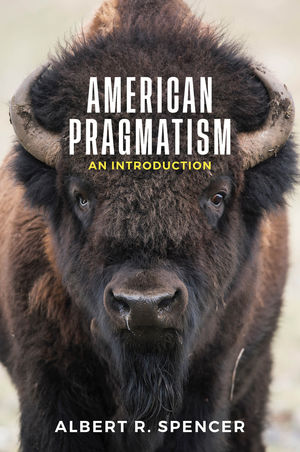The Long Letter
If I had more time, I would have written a shorter letter
American Pragmatism - An Introduction

I'm not a philosopher but I enjoy studying different strands of philosophical thought. While I'm not entirely sure I'm always grokking the complexities of certain systems, I have nonetheless greatly benefited from my studies. If only in gaining a recognition that things can be deeper and more complex than we first think.
My self-directed study is primarily in Christian/theological/spiritual philosophy. I don't intentionally limit my reading to this specific genre but it's what interests me and I don't have time to read things that don't appeal to me.
As such, I've found myself learning and being influenced by various philosophical traditions: idealism, existentialism, process philosophy, Thomism, pragmatism and more.
One tradition I find myself returning to is American pragmatism. There's something about the embodied and fallibilistic nature of pragmatism that appeals to me. While I've really enjoyed studying idealism and process philosophy, I can't shake the feeling that they sometimes get a little too high off the ground for me. Analytic philosophy bores me to tears with the overly technical attention to words and structure, and continental philosophy sounds impressive until I realize I haven't understood a word of it.
If you are offended that I've slighted your favorite philosophy, don't be. I'm just not that smart. In other words, it's not you, it's me :)
I've read a few books on pragmatism but I'm always on the look out for new material and by chance, I stumbled upon American Pragmatism - An Introduction by Albert R. Spencer.
I've only just started the book but the writing is very clear and the discourse is excellent as a primer to better understanding American Pragmatism.
The difficulty in learning about pragmatism stems from the fact that from the very beginning, proponents disagreed or emphasized different particulars of what it meant to be a pragmatist. A sort of de-systematizing is built into the very fabric.
The introduction discusses pragmatism in four parts starting with a general definition:
... pragmatism is a late nineteenth century American philosophical tradition conceived of by Peirce, enriched by James, systematized by Dewey, and developed by a variety of other authors throughout the twentieth century. At its core lies the assumption that beliefs are inseparable from actions, therefore the truth of beliefs should be evaluated according to their consequences. - Spencer, Albert R.. American Pragmatism (p. 4). Wiley. Kindle Edition.
- Pragmatism as a Contested Tradition - This section discusses what work the term American is doing in American Pragmatism. The section breaks it down into the national, philosophical, and cultural senses.
- Pragmatism as a Philosophy of Place - The term place here emphasizes not just a local boundary but also cultural as well. This was an interesting point in the book for me as the author brings in the experience of indigenous populations and their implication regarding pragmatism.
- Pragmatism as an Embodied Philosophy - Pragmatism focuses on the embodied nature of our being. That is, we don't experience the world from some outside vantage point. Spencer brings up many interesting points regarding the embedded nature of our understanding of the world and how pragmatism incorporates this view.
- Pragmatism as a Philosophy of Experience - The discussion on experience focuses primarily on life and works of Ralph Waldo Emerson and his address "The American Scholar" that functions as pragmatism's founding document. I was surprised by this topic as I had never associated Emerson with anything having to do with pragmatism. It was a very interesting breakdown of "the era of the common man".
I can say that I didn't really expect the discussion to be so centric to the American experience of the time but I'm glad the author touched on it. I'm also impressed with the author's attention to what it means to be American, both in the sense of recognition of the good and noteworthy and a frank discussion of the pitfalls and blindspots. It's so easy to either embrace or dismiss American historical baggage but the author avoids that here and goes further to impress a kind of hope-filled outlook. This in itself is an example of the sort of non-duality that pragmatism has to offer.
I'm really enjoying this book and I've been pleasantly surprised in the unexpected perspectives that it has uncovered so far.